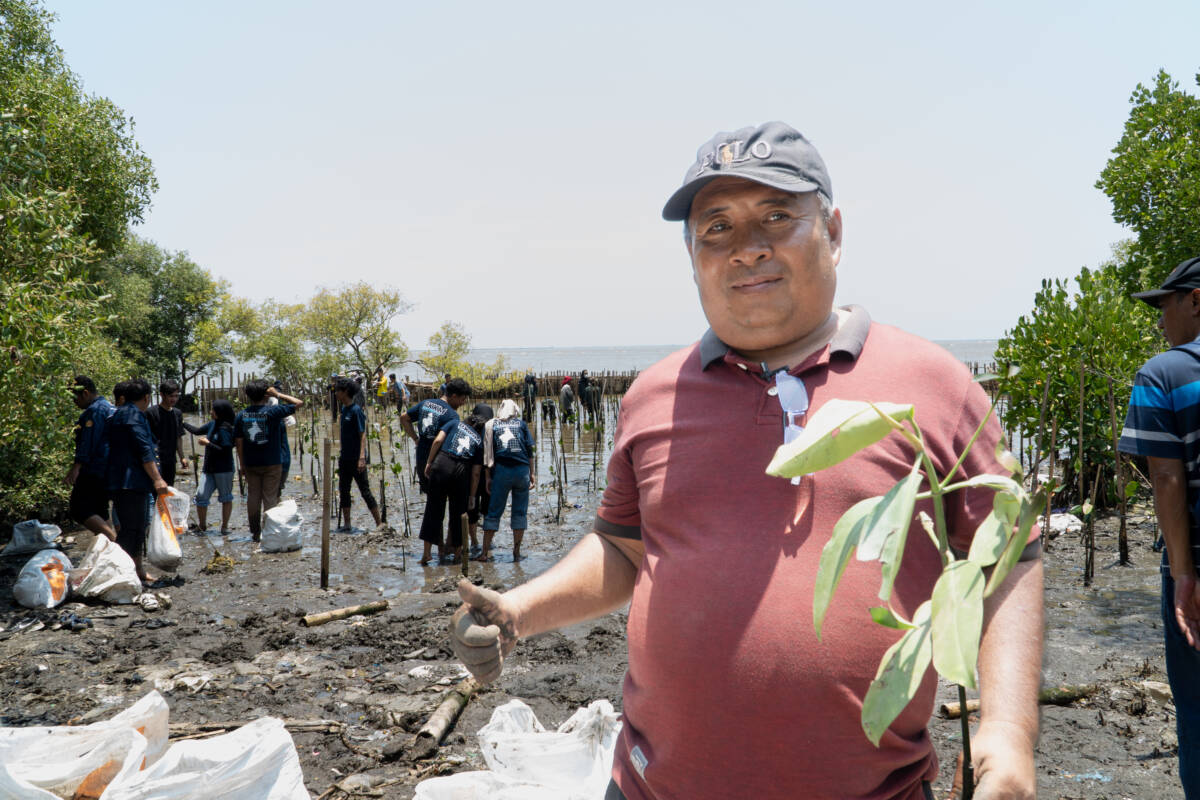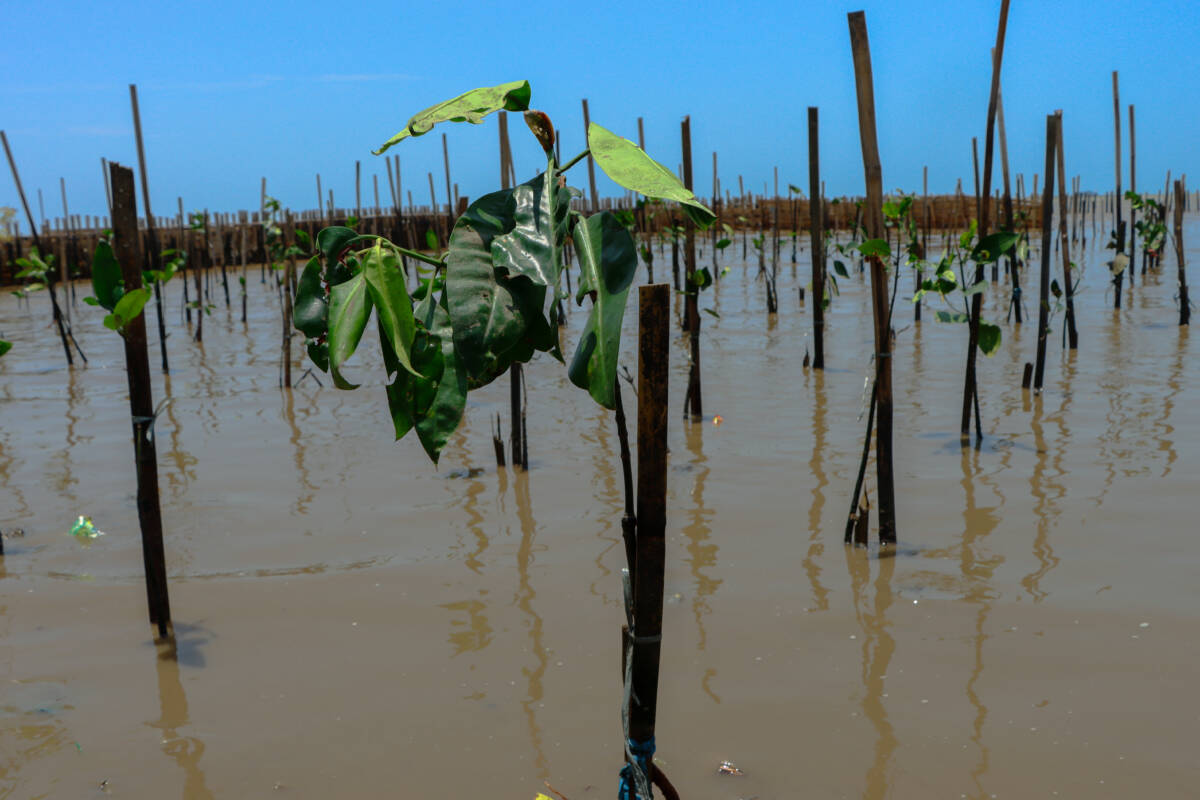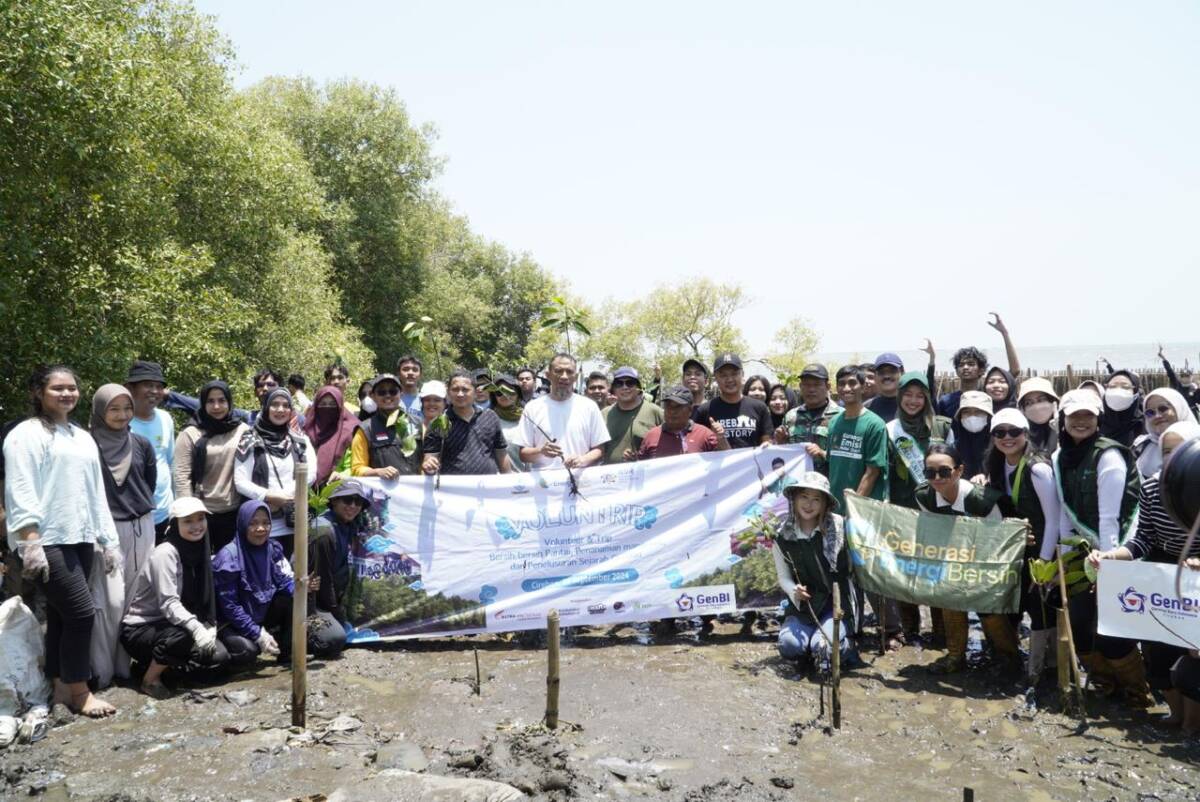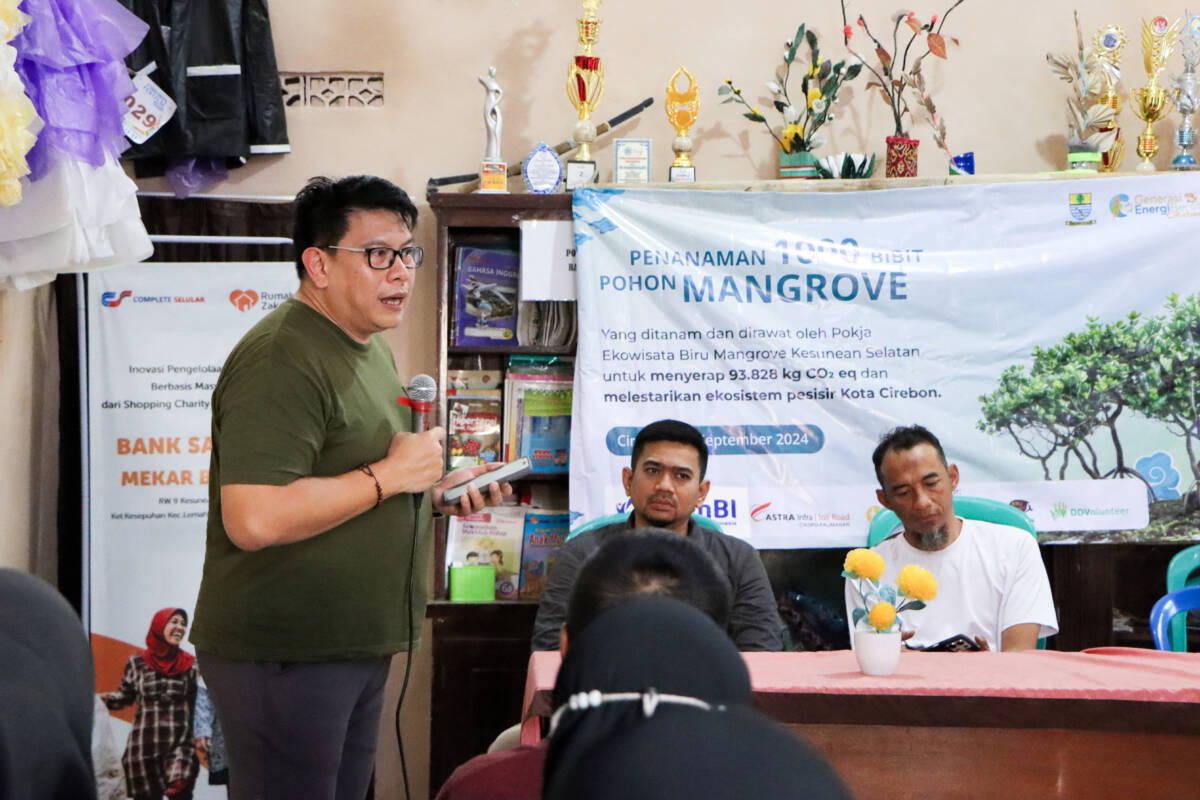Cirebon, 28 September 2024 – Dozens of volunteers from various organizations gathered in neighborhood associations (RW) 09 Kesunean Selatan, Cirebon, to participate in a Waste Cleanup and Mangrove Seedling Planting event aimed at promoting sustainable mangrove conservation. The event was organized by the Institute for Essential Services Reform (IESR), Generasi Energi Bersih (GEN-B) Indonesia, GEN-B Cirebon, RW 09 South Kesunean, and the Cirebon City Government and in collaboration with Astra Tol Cipali, kolaboratorkebaikan.id, Cirebon History, World Cleanup Day Cirebon, DDVolunteer, New Generation of Indonesia (GenBI) Cirebon (28/09/2024).
 The Garbage Cleanup and Mangrove Seedling Planting activity was attended by local residents and represented by the Chairman of RW 09 South Kesunean Village, Cirebon, doc : IESR
The Garbage Cleanup and Mangrove Seedling Planting activity was attended by local residents and represented by the Chairman of RW 09 South Kesunean Village, Cirebon, doc : IESR
In his speech, RW 09 Chairman Pepep Nurhadi highlighted the importance of mangrove conservation and emphasized that developing the area as an ecotourism site will bring both economic and environmental benefits to the community.
“We hope that through cooperation with the Generasi Energi Bersih community and other partners, the current 7-hectare mangrove area can expand to 10 or even 15 hectares in the future,” Pepep said.
Similarly, Fabby Tumiwa, Executive Director of IESR, highlighted during the same occasion that mangroves provide significant benefits to both society and the environment. Fabby explained that mangroves offer three key advantages: they serve as natural nurseries for fish species, boosting fish stocks for fishermen; they help preserve biodiversity; and they absorb pollution and carbon dioxide, which benefits human health.
“The primary cause of climate change is the rising concentration of greenhouse gasses, including carbon dioxide, produced by the burning of fossil fuels we use daily, such as fuel for vehicles or electricity generated from coal. Mangrove forests have the ability to absorb and store carbon emissions throughout their lifespan. One hectare of mangrove forest can sequester approximately 27 to 38 tons of carbon per year,” Fabby explained.

Fabby also emphasized the potential of mangrove ecotourism in creating new jobs, such as tour guides and the sale of mangrove-based products. He encourages continued collaboration to support the construction of bridges that would prevent tree cutting caused by the opening of pathways to the sea.
Head of the Department of Women’s Empowerment and Child Protection and Population Control and Family Planning (DP3APPKB), Suwarso Budi, expressed his appreciation for the initiative of the RW 09 South Kesunean community and the collaboration of various parties in preserving the mangrove area. He emphasized the importance of maintaining and protecting the planted mangroves, as well as raising public awareness to prevent littering.
“Raising public awareness to care for the environment and address waste issues at the individual or community level is essential. Such awareness, combined with collaboration among various parties, will ease the efforts to protect the environment,” Budi said.
Maya Lynn, National Chairperson of GEN-B Indonesia, together with volunteers from Jakarta and Cirebon, participated in the activity and reaffirmed GEN-B’s commitment to fostering collaboration in realizing mangrove ecotourism and the construction of a bridge.
 Combination of Several Organizations in Garbage Cleanup and Mangrove Seedling Planting Activity in Cirebon, doc : IESR
Combination of Several Organizations in Garbage Cleanup and Mangrove Seedling Planting Activity in Cirebon, doc : IESR

